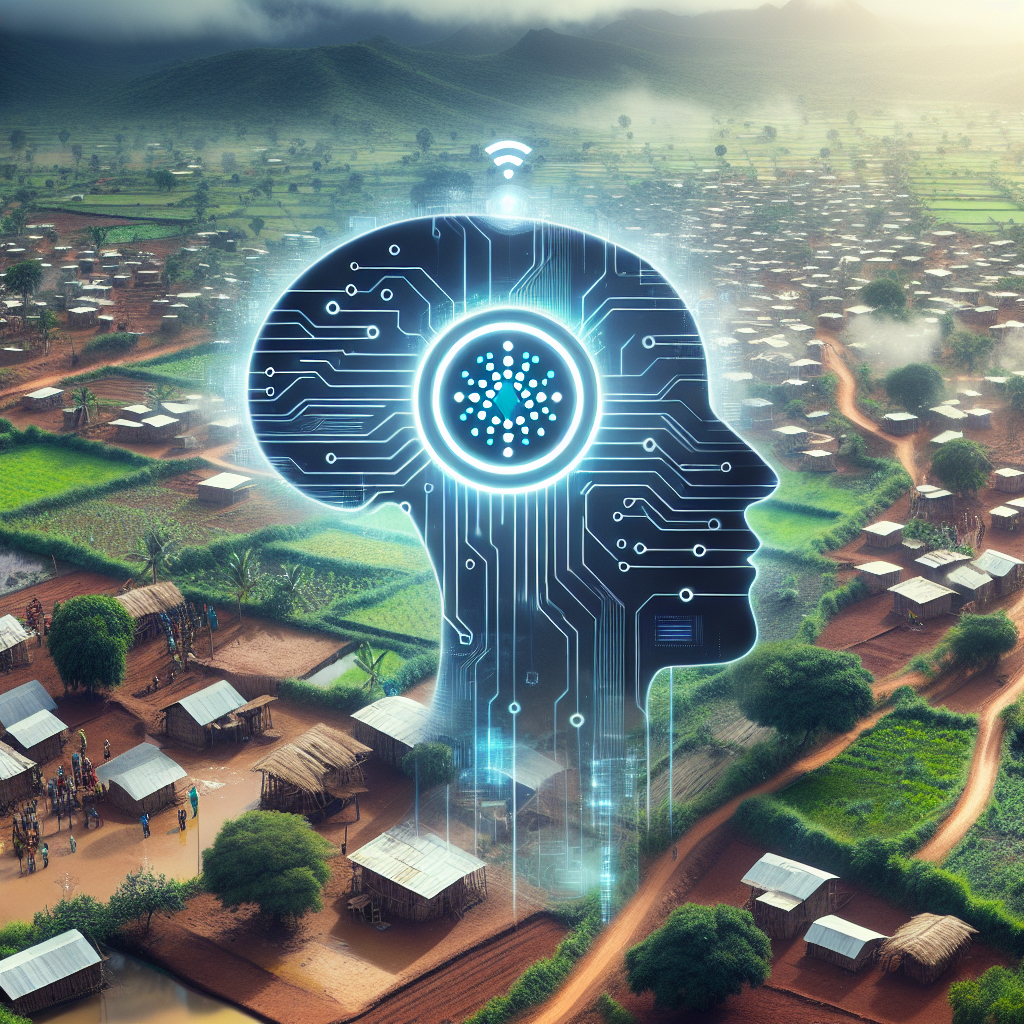Altcoins
AI Hysteria Overshadows Cardano’s Real Challenge: Bridging Africa’s Internet Divide

As the global discourse intensifies around the societal implications of artificial intelligence (AI), a critical issue often overlooked is Africa’s stark digital divide. Despite the fervor surrounding AI, the continent grapples with a more immediate concern: the lack of universal internet access, which poses a significant barrier to technological advancement and the equitable adoption of AI technologies.
While AI continues to spark debates about ethics, job displacement, and cybersecurity in more developed regions, many parts of Africa remain anchored by fundamental technological challenges. Statistics reveal that only a fraction of Africa’s population has reliable access to the internet, rendering the integration of AI technologies into everyday life a distant prospect for millions. With approximately 41.5% of Africans connected to the internet, a figure that lags behind the global average significantly, the conversation about AI’s transformative potential seems premature and misplaced for the continent.
The core issue stems from the uneven distribution of internet infrastructure across Africa. Urban areas may enjoy better connectivity, but rural regions, where the majority of the population resides, often lack even basic internet access. This disparity exacerbates existing inequalities, leaving rural communities isolated from digital innovations that could drive economic growth and improve quality of life. The narrative of AI-driven change and innovation starkly contrasts with the daily realities faced by these communities.
Governments and private sectors across Africa have made strides to address this digital gap, yet progress remains slow and uneven. Initiatives aimed at expanding internet infrastructure, such as undersea cables and satellites, are underway. However, these solutions are capital-intensive and face logistical challenges that delay their implementation. Moreover, the high cost of internet services, combined with limited digital literacy, further hinders widespread adoption.
The focus on AI’s potential threats and benefits often overshadows the urgent need for policies and investments directed at enhancing internet access. Bridging this digital divide is essential, not only for AI adoption but also for enabling broader technological advancements that can catalyze social and economic development. Improving internet connectivity can empower educational opportunities, enhance healthcare delivery through telemedicine, and support entrepreneurship by providing access to global markets.
Some countries in Africa have started experimenting with innovative solutions to tackle connectivity issues. For instance, community networks have emerged as a grassroots approach to extend internet access to remote areas. These networks, often operated by local cooperatives, utilize solar-powered routers and inexpensive wireless technologies to create cost-effective connectivity solutions. Such initiatives illustrate the potential for community-driven efforts to complement larger infrastructure projects.
Moreover, international collaborations and investments are crucial in accelerating progress. Partnerships with global tech companies can provide essential infrastructure and expertise to enhance Africa’s digital landscape. These collaborations not only facilitate infrastructural development but also cultivate a technology-driven workforce capable of utilizing AI and other emerging technologies. Educational programs focused on digital skills can play a pivotal role in preparing the next generation for a technology-oriented future.
The current discourse on AI must recognize the unique challenges faced by Africa and adjust its focus accordingly. For AI to be a genuine force for good on the continent, foundational issues like internet accessibility must be prioritized. Beyond mere rhetoric, practical steps must be taken to ensure that Africa is not left behind in the changing technological landscape. Achieving universal internet access is a critical first step in unlocking the transformative potential of AI and other digital innovations, ensuring they benefit all segments of the population.
As the world continues to navigate the complexities of AI adoption, it is imperative to consider global disparities in access and infrastructure. While AI presents opportunities for advancement, the foundational issue of internet access remains a pressing challenge for Africa. Addressing this issue is not merely a technological imperative but a moral obligation to ensure that all people have the opportunity to participate in and benefit from the digital revolution.
-

 Press Releases2 years ago
Press Releases2 years agoGaming Technologies of the New Time!
-

 Altcoins12 months ago
Altcoins12 months agoBitcoin Declines Below $80K: deVere CEO Nigel Green Remains Bullish on Long-Term Outlook Following Strategic U.S. Bitcoin Reserve Announcement
-

 Altcoins11 months ago
Altcoins11 months agoCalls for Enhanced Discussion on Bitcoin as Brazil’s Reserve Asset: A Move Towards ‘Internet’s Gold’
-

 Bitcoin1 year ago
Bitcoin1 year agoBitcoin Surges Past $64K as SEI and POPCAT Lead Daily Crypto Gains on September 25
-

 Press Releases2 years ago
Press Releases2 years agoEvo Exchange: Redefining the Decentralized Exchange Landscape
-

 Bitcoin7 months ago
Bitcoin7 months agoGrayscale Investments Submits Draft Registration for IPO, Aiming for Public Trading in U.S.
-

 Press Releases1 year ago
Press Releases1 year agoCODE, a Newly Born Project Brings Decentralization Back to the Main Menu
-

 Bitcoin7 months ago
Bitcoin7 months agoPeter Schiff Critiques New Crypto Legislation, Claims Bitcoin (BTC) Gains are Short-Lived




